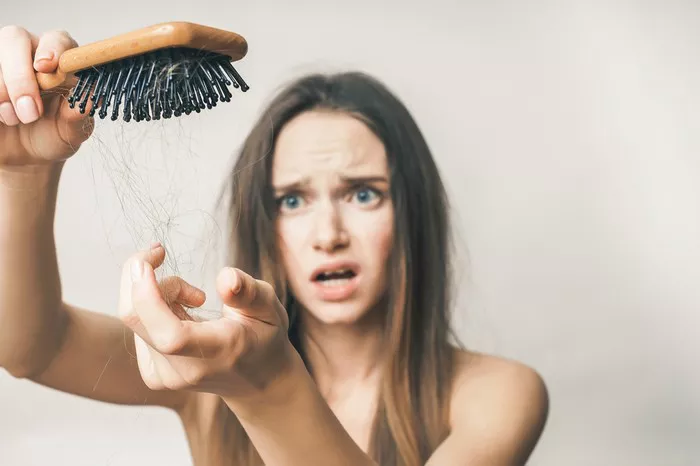Hard water, characterized by its high mineral content, is a common issue in many regions worldwide. While it’s known to create various household nuisances like soap scum and scale buildup, its effects on personal grooming, particularly hair health, are often overlooked. Among the numerous concerns associated with hard water, hair loss stands out as a significant worry for many individuals. Understanding the underlying mechanisms behind this phenomenon is crucial for devising effective preventive measures and maintaining healthy hair. In this article, we delve into the intricate relationship between hard water and hair loss, exploring the scientific rationale and practical implications.
What is Hard Water?
Before delving into the specifics of how hard water impacts hair, it’s essential to grasp what hard water actually is. Hard water is water that contains high levels of dissolved minerals, primarily calcium and magnesium ions. These minerals are typically picked up as water flows through rock formations and soil layers, dissolving mineral deposits along the way. The degree of hardness varies depending on geographic location, with some regions experiencing more pronounced effects than others.
The Impact of Hard Water on Hair
Hard water affects hair in several ways, leading to a range of undesirable outcomes, including dryness, dullness, and ultimately, hair loss. The following are key mechanisms through which hard water exerts its influence on hair health:
1. Mineral Deposits
One of the most evident effects of hard water on hair is the buildup of mineral deposits. As hard water comes into contact with the scalp and hair strands, it leaves behind mineral residue. Over time, this buildup can clog hair follicles and disrupt the scalp’s natural balance, impeding healthy hair growth. Additionally, mineral deposits can weigh down hair, making it appear limp and lifeless.
2. Altered pH Balance
Hard water tends to have a higher pH level compared to soft water. This altered pH balance can strip the hair of its natural oils, leaving it dry and brittle. When the hair becomes excessively dry, it becomes more prone to breakage and shedding. Moreover, the disrupted pH balance can irritate the scalp, leading to inflammation and further exacerbating hair loss.
3. Reduced Lathering of Shampoo
Another consequence of hard water is its impact on the effectiveness of hair care products, particularly shampoo. The minerals present in hard water can react with the surfactants in shampoo, forming insoluble compounds that inhibit lathering. As a result, individuals may end up using more shampoo or resorting to harsher cleansing methods, which can further contribute to hair damage and loss.
4. Weakened Hair Shaft
The minerals present in hard water can penetrate the hair shaft, weakening its structure over time. This weakening makes the hair more susceptible to damage from external factors such as heat styling, chemical treatments, and environmental stressors. Ultimately, weakened hair shafts are more prone to breakage and premature shedding, leading to noticeable hair loss.
Scientific Evidence Supporting the Connection
While anecdotal evidence of hard water’s impact on hair is abundant, scientific studies have also shed light on the relationship between the two. Research has shown that the minerals present in hard water can indeed compromise hair health. For instance, a study published in the International Journal of Trichology found that exposure to hard water resulted in increased hair breakage and reduced tensile strength. Another study published in the Journal of Cosmetic Science demonstrated that hard water could lead to mineral buildup on the hair surface, affecting its overall appearance and manageability.
Furthermore, research conducted by the Water Quality Association has highlighted the prevalence of hard water in various regions and its potential consequences for personal grooming. These findings underscore the need for awareness and proactive measures to mitigate the adverse effects of hard water on hair and scalp health.
Practical Strategies for Mitigating Hard Water Effects
While completely eliminating hard water from daily life may not be feasible for most individuals, there are several strategies that can help minimize its impact on hair health:
1. Water Filtration Systems
Installing a water filtration system, such as a water softener or shower filter, can effectively reduce the mineral content in hard water. These systems work by removing or neutralizing the minerals that cause hardness, resulting in softer water that is gentler on the hair and skin.
2. Clarifying Shampoos
Using clarifying shampoos regularly can help remove mineral buildup and residues from hard water. These shampoos contain ingredients that effectively cleanse the hair and scalp, restoring their natural balance and vitality. Additionally, incorporating a clarifying treatment into the hair care routine can prevent dullness and enhance hair manageability.
3. Acidic Rinse
Rinsing the hair with an acidic solution, such as diluted apple cider vinegar or lemon juice, can help restore the scalp’s pH balance after exposure to hard water. Acidic rinses help close the hair cuticles, making the hair smoother and more resistant to damage. It’s essential to follow up with a thorough rinse with clean water to remove any lingering residue.
4. Protective Styling
Opting for protective hairstyles, such as braids, buns, or updos, can minimize the exposure of hair to hard water and environmental stressors. These styles help prevent friction and breakage, allowing the hair to retain its strength and integrity. Additionally, using satin or silk hair accessories can reduce friction and minimize damage to the hair shaft.
Conclusion
In conclusion, hard water can have detrimental effects on hair health, including dryness, dullness, and hair loss. The high mineral content in hard water can lead to mineral buildup, altered pH balance, and weakened hair shafts, all of which contribute to hair damage and shedding. Understanding the mechanisms underlying the impact of hard water on hair is essential for implementing effective preventive strategies. By utilizing water filtration systems, clarifying shampoos, acidic rinses, and protective styling techniques, individuals can mitigate the adverse effects of hard water and maintain healthy, vibrant hair. Ultimately, prioritizing hair care in areas with hard water is crucial for preserving hair health and preventing unwanted hair loss.


